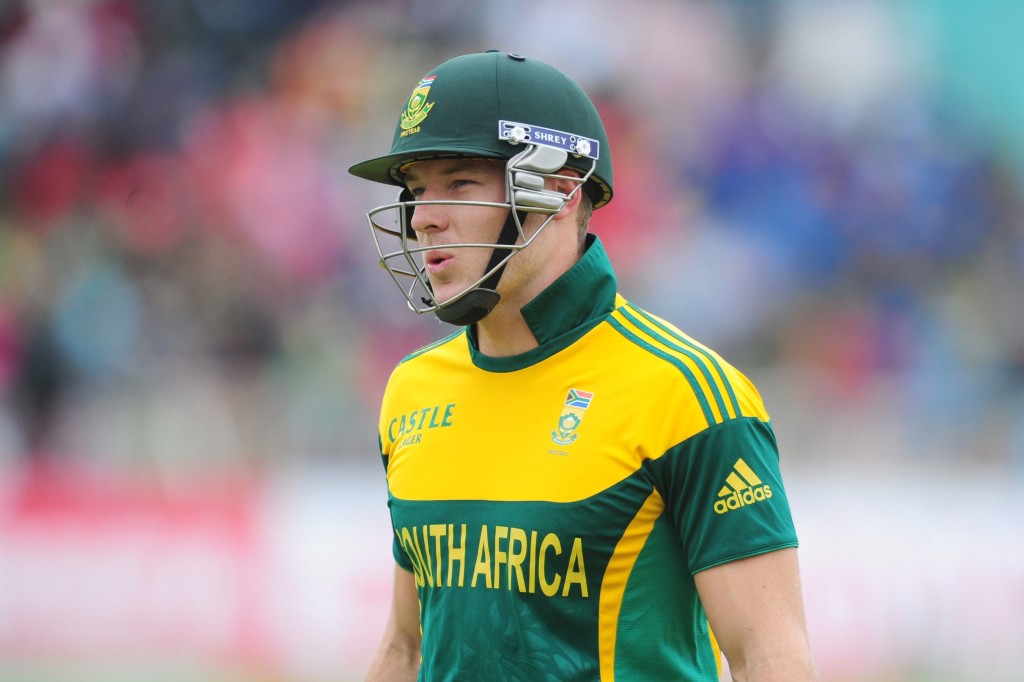No matter what AB de Villiers and David Miller threatened to do, South Africa were never going to win the first ODI in Perth.
Sure, the two batted with calmness and maturity as they compiled 126 for the fifth wicket in 20 overs after Faf du Plessis fell for the trap set by Shane Watson with the score on 76 in the 16th over.
But, with another 225 required when Miller joined De Villiers, the Proteas were never going to rip victory from the jaws of defeat after a shoddy performance with the ball in the last 10 overs and four dropped catches allowed the Australians to bolt to 300.
De Villiers and Miller stayed together until the beginning of the 37th over, but when the latter was caught for a run-a-ball 65, that left Ryan McLaren, Vernon Philander, Dale Steyn, Morne Morkel and Imran Tahir to get another 99, along with De Villiers.
Don’t be fooled by the margin of Australia’s 32-run victory: Morkel and Tahir put on 46 runs for the final wicket but that simply flattered the Proteas.
We’ve said it before so we may as well say it now, because it has been falling on deaf South African selectors’ ears: the balance of this ODI side is wrong. We have asked the question, ‘what will happen when the top order fails because from 7 to 11 the innings falls away, despite Morkel and Tahir’s entertaining stand on Friday. At the Waca we saw the answer – defeat.
The top-order can’t always be expected to fire, so when the bowlers don’t do their job a result like this one was always inevitable.
As we look to pluck the positives from the wreckage of defeat we have to look at De Villiers, again the class act on the South African side. In reaching 80 off 76 balls he became the fastest ODI player to 7 000 runs. That’s a phenomenal achievement considering the quality that has gone before him. He has an average of over 51 and a strike rate of nearly a run a ball.
On the day he was named the ODI Cricketer of the Year he again did his best to steer his team through turbulent waters, but it was not enough.
Let’s not blame rust for the poor performance in the field. Miller and Tahir spilled catches off George Bailey when he hadn’t got started and those two catastrophes cost the Proteas the first game in the five-match series.
Philander also dropped once, although it wasn’t easy and the ball was dropping over his shoulder as he ran, while Farhaan Behardien injured his shoulder as he rolled over to take a catch at deep mid-wicket. However, his ego and pride would have been more hurt than his shoulder because when he batted he moved freely enough before holing out for 20 off 22 balls.
The Proteas enjoyed a good hour when they took five wickets for 50 runs as Australia went from 94-0 to 144-5, but they allowed their opponents to regroup before launching their response in the last 10 overs which produced a hundred runs.
However, McLaren had a poor game with bat and ball – the Australians seem to have his number and he again perished against the short ball – and someone like Kyle Abbott has to be brought in to bowl at the death. With the ball McLaren went at seven an over and bowled six wides, which is another full over.
If Abbott comes in that would mean one of the bowlers would drop out, which is a problem for the selectors. Tahir went for 39 runs in nine overs after his first had gone for 15, while Steyn was expensive (2 for 62) and Morkel leaked 56 in his 10. Philander got four wickets for the second time in his career – 4-45 – but the bowling unit conceded 12 wides, or another two overs.
That was sloppy indeed and costly.
South Africa didn’t deserve to win and it would have been a travesty had they fluked it once they let Australia get to 300, a target that has never been chased down in Perth.
There are nine ODIs left for the Proteas to get it right before the World Cup. The selectors are under pressure. JP Duminy’s return will help, but that alone will not be enough to win the big prize.
Photo: Backpagepix





